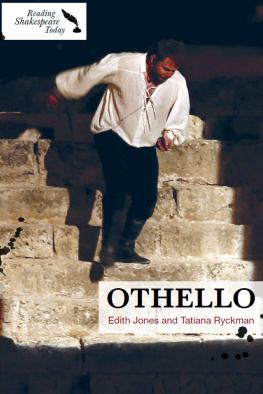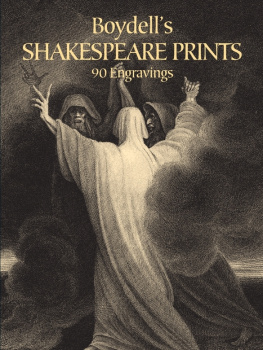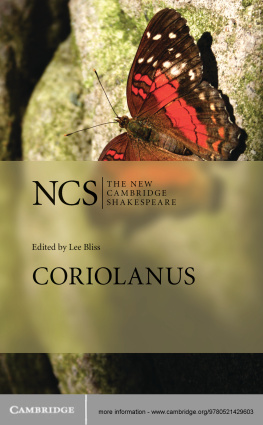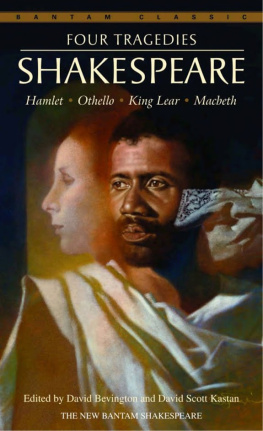PREFACE
THIS book is addressed to all or any who enjoy Shakespeare and read for pleasure. "Common Readers" we were once called, and with deserved respect. Today, in academic circles, it is alleged that our style of reader has vanished without trace. But I take this to be a self-serving illusion, witness the staggering number of books on all imaginable subjects, sometimes including even commentary on literature, sold weekly in bookstores. What has actually happened, it appears, is that Common Readers have prudently lost interest in the tribal wars and Byzantine pedantries that now balkanize professional students of literature into new-critics, new-historicists, neo-marxists, feminists, structuralists, psychoanalysts, deconstructionists, and other cells of the elect, each claiming sole possession of the truth and each purveying in its windier moments prose indecipherable (to paraphrase Polonius) and nonsense unlimited: Heidegger cannot be too heavy nor Foucault too light.
No such claim to special clairvoyance is made for the essays included here. They aim no higher than to be read as thoughtful opinion derived from long acquaintance with the plays and expressed, I like to think, without jargon. They were written to be delivered orally at various times to various audiences, normally very mixed audiences containing as many Common Readers as professionals, as many young readers as old. (Some have since been expanded.) Two of the eleven are recent. One of these, later printed privately, is now "published" for the first time. The other is quite new. The remaining nine, having appeared separately in books
-ix-
and journals, are collected here with minor changes for a readership that I hope will resemble the audiences to whom they were originally presented.
Throughout, my effort has been to focus on those aspects of the plays that seem to me to concern us not as ideologues or literary critics but as human beings with a certain interest in how great works of art manage to affect us as profoundly as they do. I am sufficiently naive to believe that men and women occasionally emerge in all fields with the kind of insight we call genius. Shakespeare is one such, in drama possibly the greatest of all such, and offers much to which, in the 1990s as in the long past, we can profitably listen. If but one word in the following commentary helps but one person to listen more intently, the book has served its purpose.
*
Like Prospero's island, the mind of anyone who has enjoyed the high privilege of teaching Shakespeare during much of his life is full of voices. Voices of the great scholars, great critics, great reviewers, great actors and directors. Since in this many-sided conversation it is often most difficult to be sure which voice is one's own, may any whom I have here echoed unawares without acknowledgment forgive me and accept this belated thanks. May also Professor Michael W. Young of the University of Nebraska English department hear and receive my paean of praise for his gallant services as editorial assistant during the final preparations of this book for print. And may it likewise be known, as always, that the greatest of my unpayable debts is to my wife, our children, and their spouses for the charity that suffereth much and is kind.
For the convenience of readers, the text of the plays throughout this book is that of the Pelican Shakespeare ( Complete Works. General editor, Alfred Harbage. Penguin Books, 1969). Citations of quoted passages give act, scene, and number of first line.
-x-
ACKNOWLE DGMENTS
CHAPTER I was originally printed as "Our Legacy from Shakespeare" in Pros and Cons: Monologues on Several Occasions, privately printed for Florence B. Mack at the Yale University Printing Office, 1989, pp.74-82. Chapter 2 originally appeared as "Engagement and Detachment in Shakespeare's Plays" in Essays on Shakespeare and Elizabethan Drama in Honor of Hardin Craig, edited by Richard Hosley , University of Missouri Press, 1962, pp.275-96. Reprinted by permission of the University of Missouri Press. Chapter 3 was first printed as "Rescuing Shakespeare" in Occasional Paper, no.I, International Shakespeare Association, privately printed at the Oxford University Press, 1979, pp.I-30. Chapter 4 was published as "An Introduction to Romeo and Juliet" in The Tragedy of Romeo and Juliet, edited by Maynard Mack and Robert Boynton, Portsmouth: Heinemann/Boynton Cook, 1981, pp.I-20. Chapter 5 appeared as "An Introduction to Julius Caesar" in The Tragedy of Julius Caesar, edited by Maynard Mack and Robert Boynton, Portsmouth: Heinemann/Boynton-Cook, 1981, pp. I 16. Chapter 6 was published as "The World of Hamlet" in The Yale Review, 41 ( 1953): 502-23. Chapter 8 was originally subtitled "An Essay on Some Characteristics of King Lear" in The Yale Review, 54 ( 1964): 161-80. Chapter 9 appeared as "An Introduction to Macbeth" in The Tragedy of Macbeth, edited by Maynard Mack and Robert Boynton, Portsmouth: Heinemann/Boynton-Cook, 1981, pp.I-14. Chapter 10 first appeared in Shakespeare's Art: Seven Essays, edited by Milton Crane, published for The George Washington University by The University of Chicago Press, 1973, pp.79-113
-xi-
of Chicago Press, 1973, pp.79-113. Reprinted by permission of The George Washington University. Chapter II was originally titled "The Jacobean Shakespeare" in Jacobean Theatre: Stratford-upon-Avon Studies, I, edited by John Russell Brown and Bernard Harris, London: Edward Arnold, 1960, pp. 10-41.
-xii-
CHAPTER ONE
EVERYBODY'S SHAKESPEARE
I
SHAKESPEARE is the only writer in world literature who actually comes close to belonging to the world. Of course there are whole peoples who have never heard of him, whole peoples who may have heard of him but have never read him or seen a play of his onstage. And of course some parts of Shakespeare are more accessible than others. Still, his plays continue to be produced, occasionally or regularly, in many dozens of languages and countries on all the continents of the world. However far cultures and values may differ, there are events and characters in plays like Macbeth and Othello and Romeo and Juliet, not to mention King Lear and Julius Caesar, to which at least some members of any culture can respond save possibly those who deprecate all works by dead Anglo-Saxon white males.
For the many who have roots in the European tradition or have become familiar with that tradition, and most especially for those to whom the English language is not strange, Shakespeare is a constant presence. Every time we open our mouths, if only to remark that somebody








